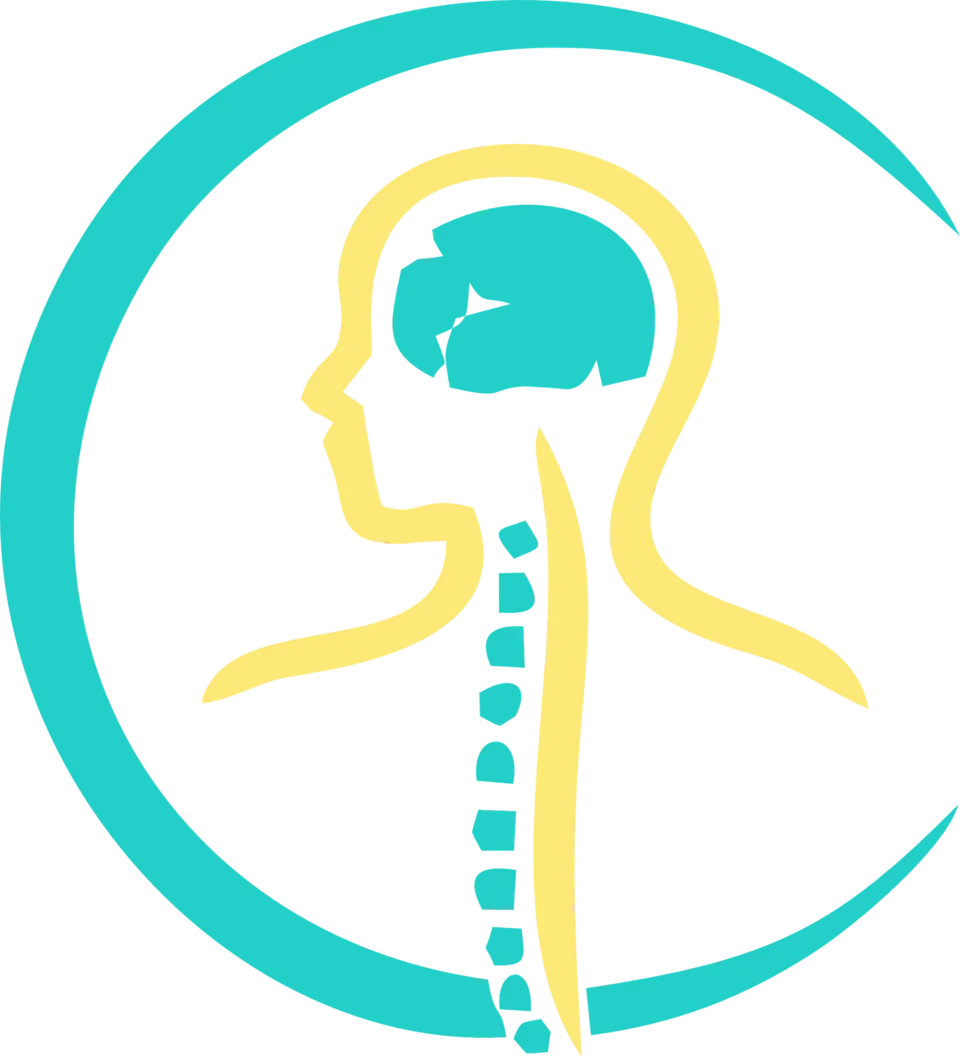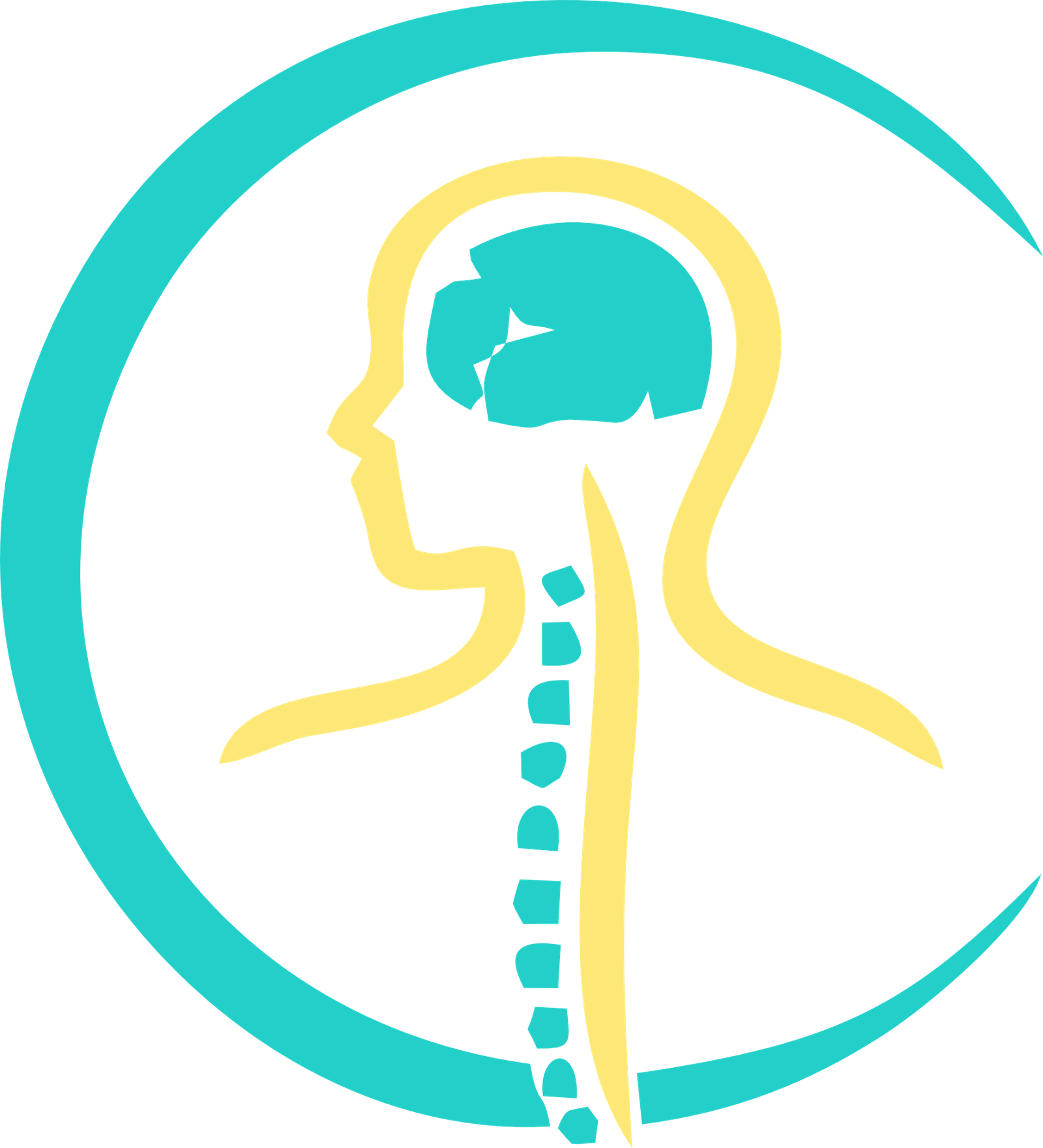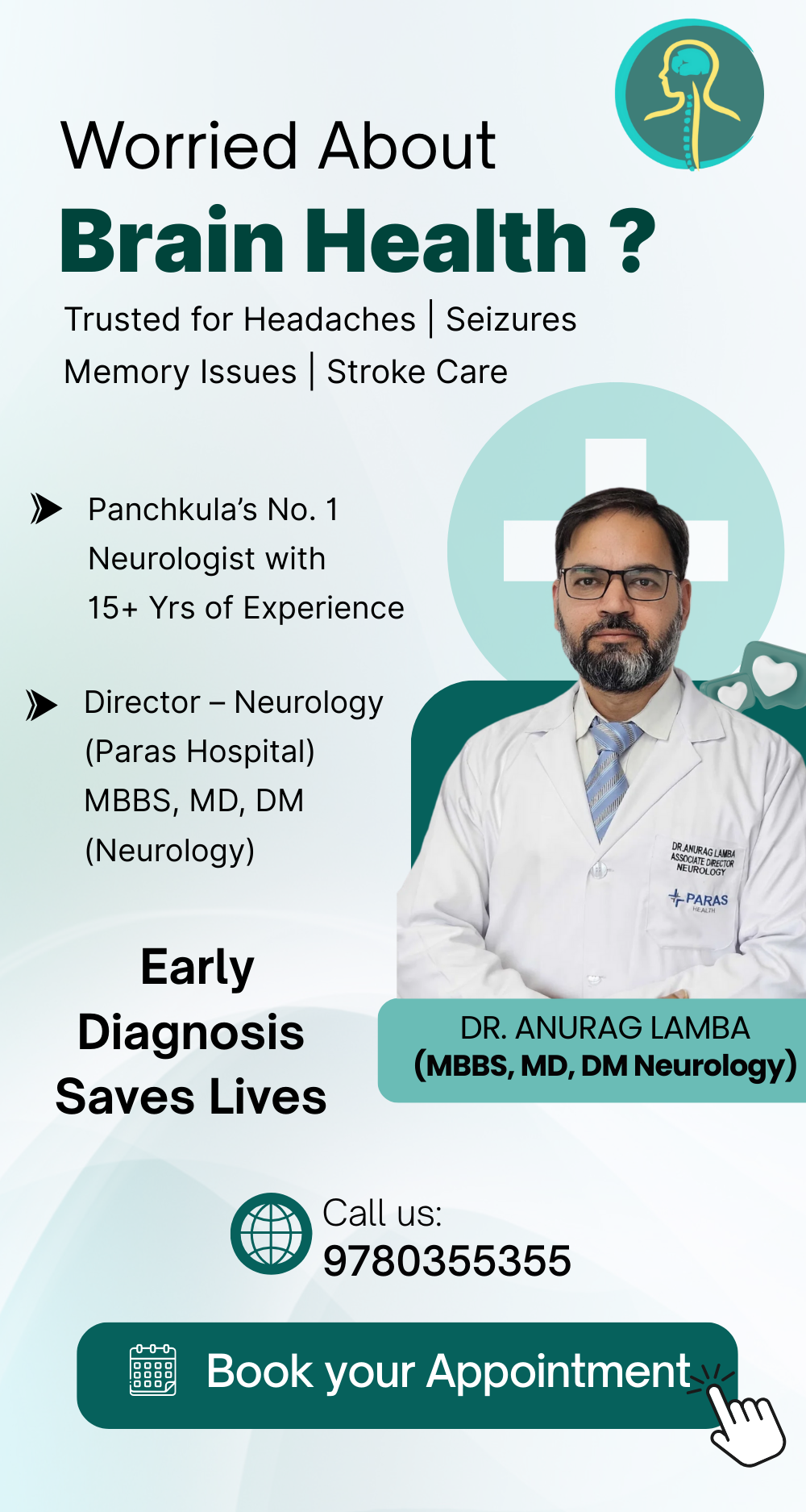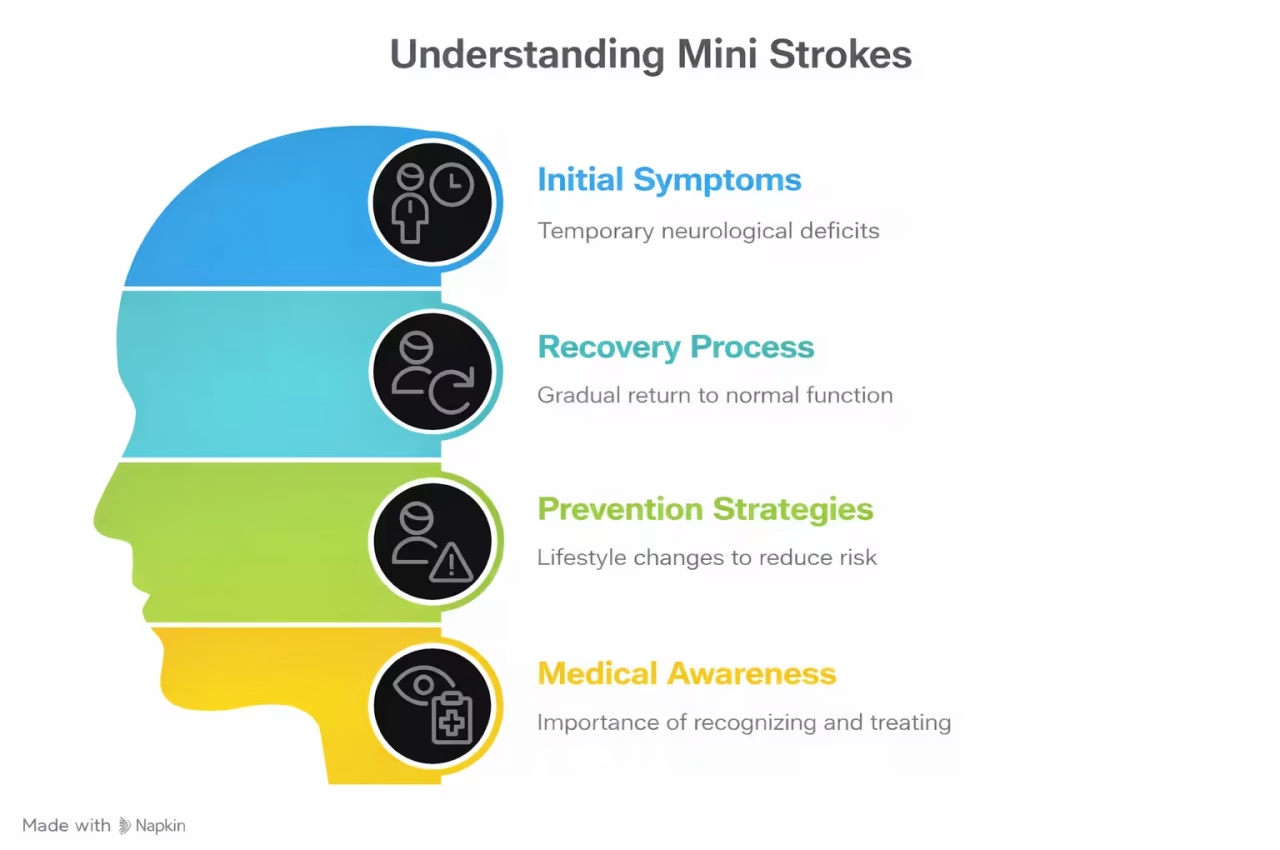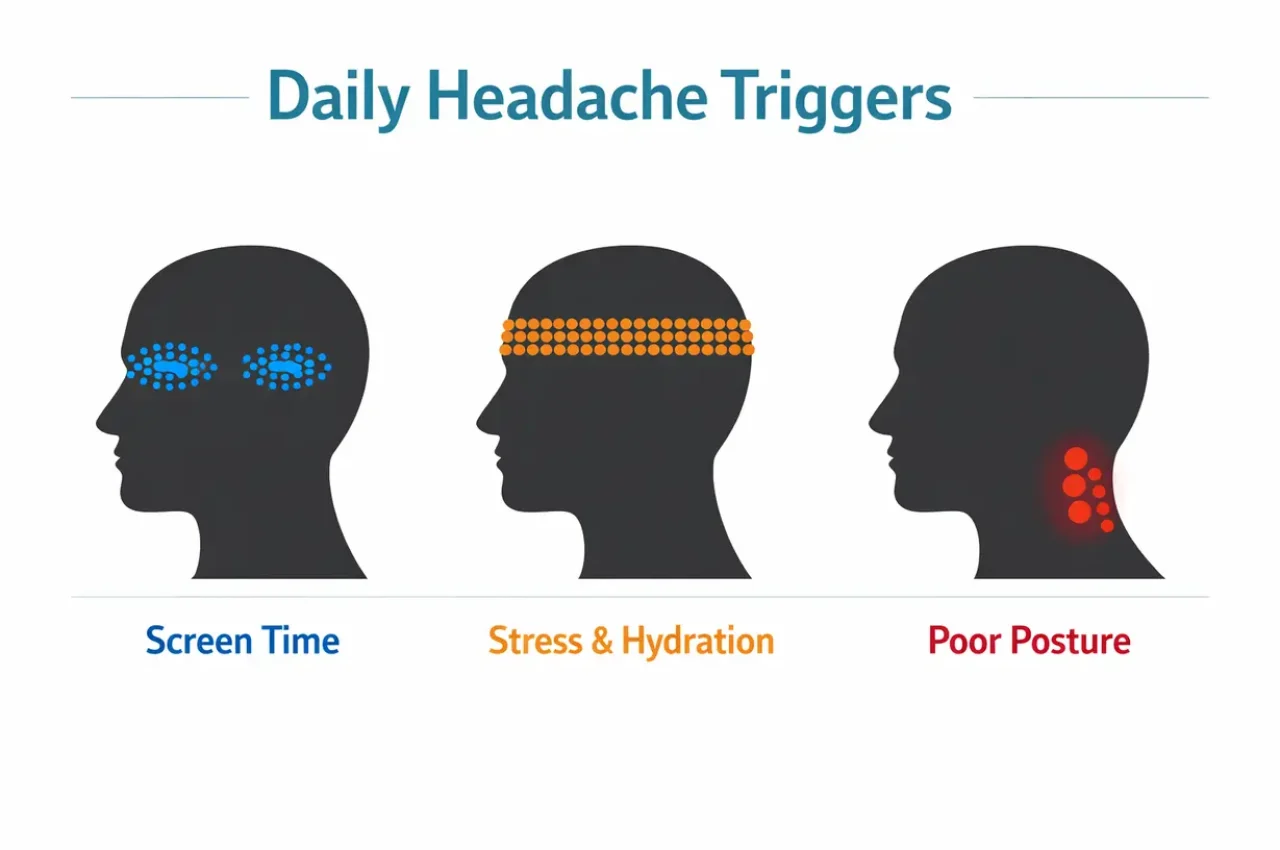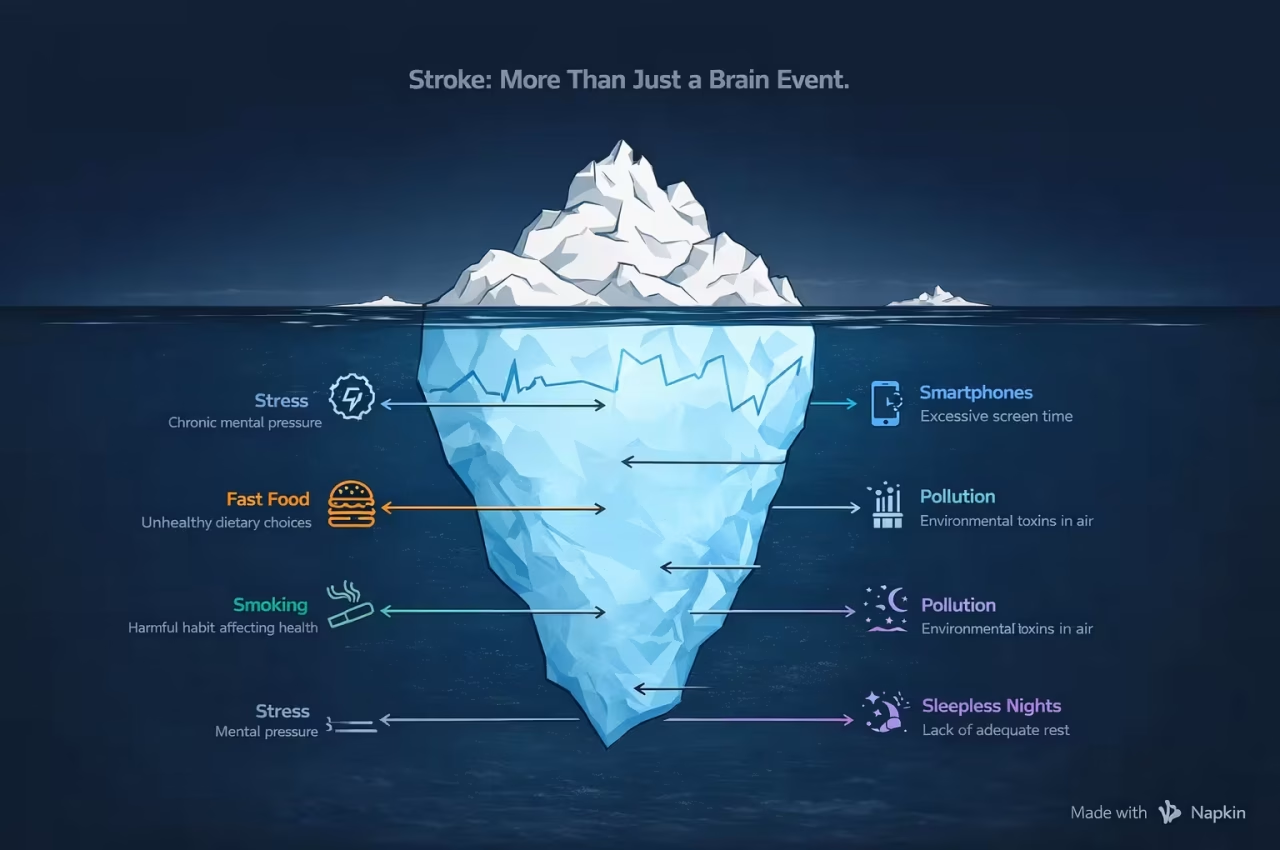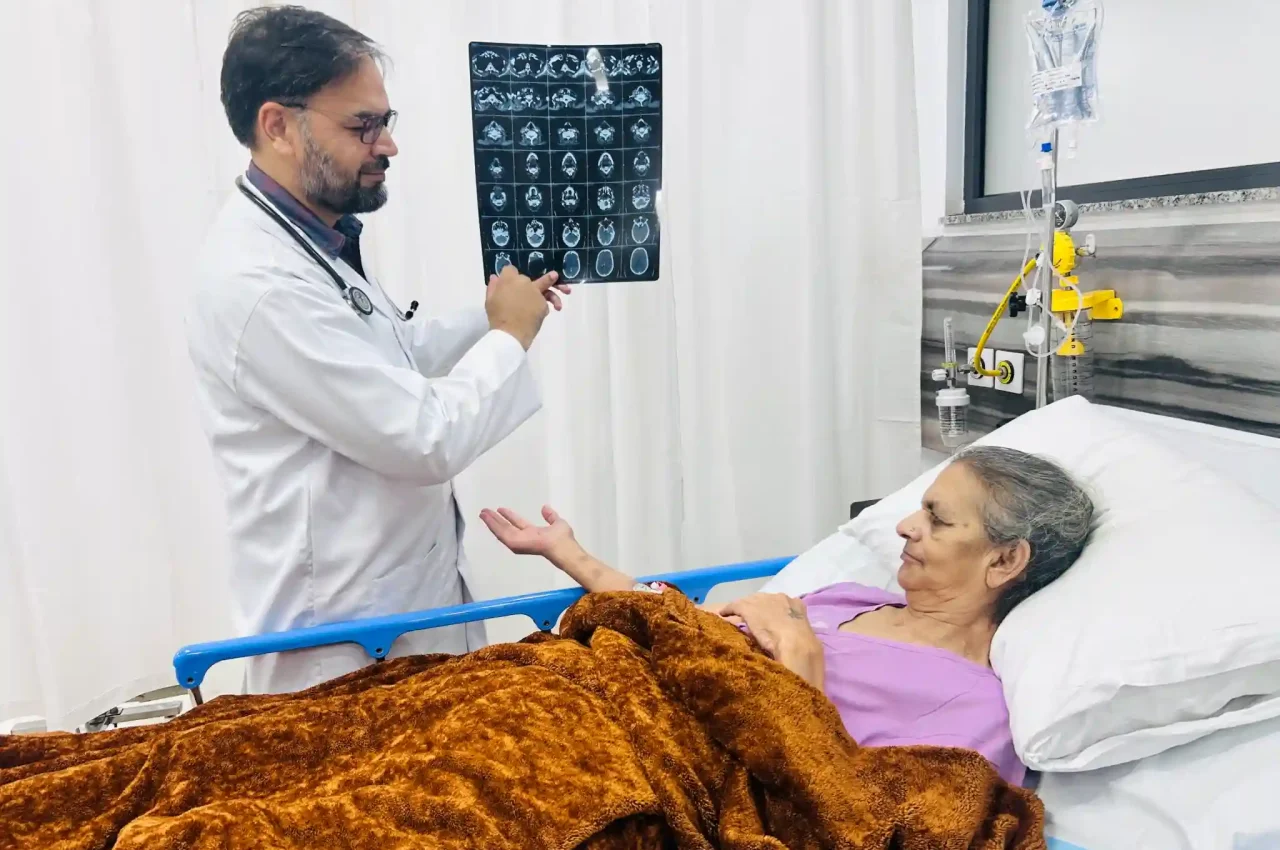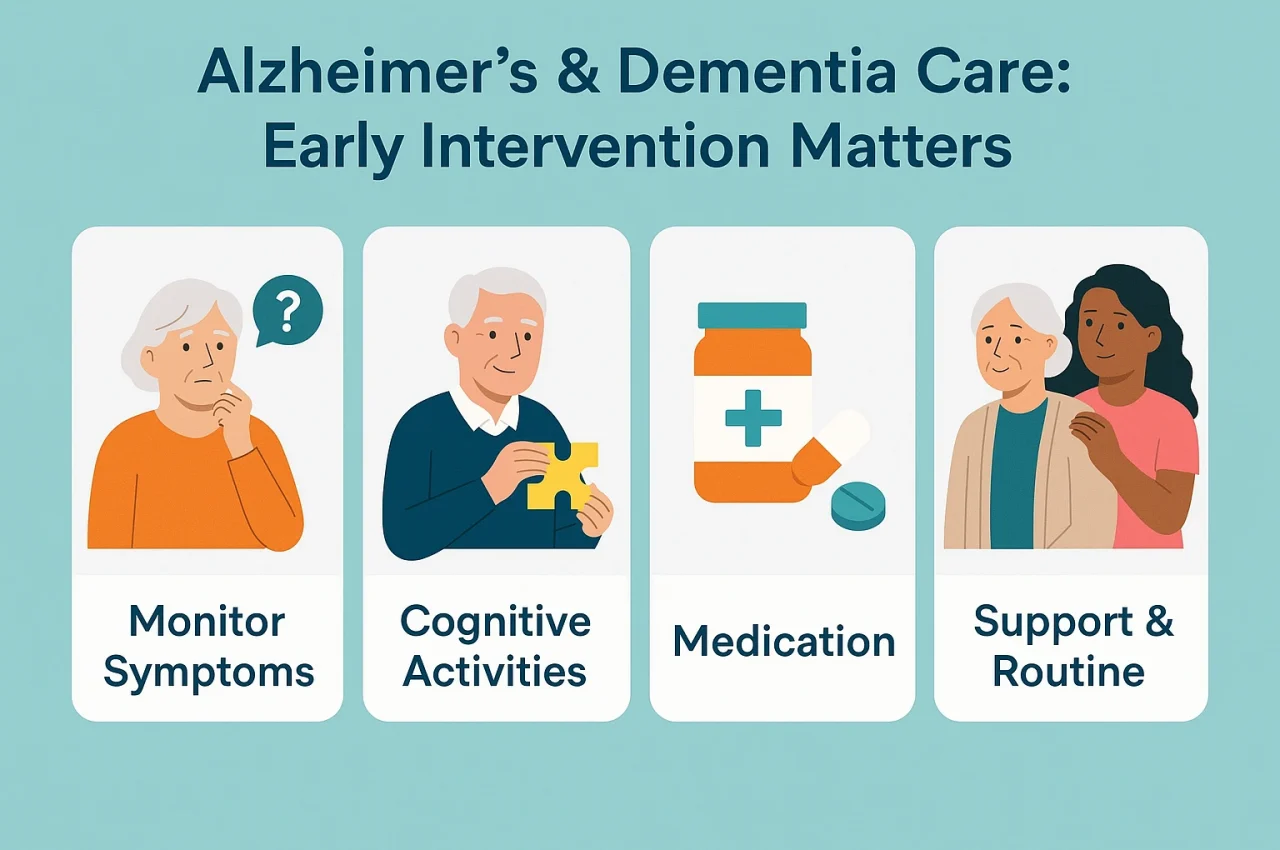She walked in thinking it was just another migraine. But 10 minutes later, her life had already started to change. What seemed like a routine check turned out to be the turning point between delay and diagnosis. And the man behind it? Dr. Anurag Lamba, a senior neurologist in Panchkula who’s quietly redefining how brain disorders are caught early often within minutes.
In this blog, we’ll explore how a simple 10-minute test caught something far more serious than a headache, what Dr. Anurag did differently, and why early neurological screening can save not just time, but lives.
Meet Neha: A 42-Year-Old With “Just Headaches”
Neha, a school principal from Sector 15 Panchkula, had been battling headaches for over a year. Like most working women, she brushed it off. “It’s just stress,” she told herself. But this time, the pain wasn’t going away. It was accompanied by slight vision blurring, occasional confusion, and unsteadiness while walking.
She visited Dr. Anurag’s neurology clinic with zero expectations. “I thought he’d give me painkillers and send me home,” she recalled. Instead, something else happened.
The 10-Minute Neuro Exam That Changed Everything
Dr. Anurag didn’t just ask questions. He observed. Neha’s posture, pupil reaction, hand tremors — things most people wouldn’t even notice. He then performed a simple but powerful bedside test: the neurological clinical screening, which evaluates reflexes, coordination, eye movement, and balance.
In less than 10 minutes, he saw red flags:
- Subtle left-sided weakness
- Delayed pupillary response
- Involuntary eye jerks (nystagmus)
“It’s not just a migraine,” he said. “We need an MRI. Now.”
And Then, the Diagnosis: A Hidden Brain Tumour
The MRI revealed a low-grade glioma a type of slow-growing brain tumor sitting near the cerebellum, the area that controls balance and coordination. It had likely been growing for years, disguised as stress headaches.
Had she waited longer, it could have impacted speech, motor function, or worse — turned malignant.
“That 10-minute test may have saved my life. I didn’t even know something was wrong,” Neha later said, wiping away tears.
Why Dr. Anurag’s Approach Stands Out in Panchkula
Most headache consultations last 5–7 minutes. But Dr. Anurag insists on a full neurological screening for anyone reporting chronic or atypical headaches. Here’s what he does differently:
- Thorough clinical exam before suggesting costly tests
- Judicious use of MRI only when clinical signs suggest red flags
- Detailed history taking diet, lifestyle, emotional state, sleep cycle
“Not every headache needs a scan. But every patient needs to be heard,” he explains.
Why Brain Tumours Often Get Missed, Especially in Women
In India, neurological symptoms in women are often mistaken for anxiety, weakness, or hormonal issues. Many doctors dismiss complaints like fatigue, dizziness, or forgetfulness.
But according to recent data from the Indian Council of Medical Research, nearly 1 in 4 brain tumours are diagnosed late — especially in non-metro areas. Early warning signs often include:
- Unusual headaches (worse in morning or with coughing)
- Blurred or double vision
- Personality changes or confusion
- Unexplained falls or balance issues
Not Just Brain Tumours, Other Conditions This Test Can Catch
Dr. Anurag’s neurological screening has helped catch:
- Mini-strokes (TIAs)
- Parkinson’s disease in early stages
- Multiple sclerosis (MS)
- Vertigo due to vestibular nerve issues
In fact, the National Institute of Neurological Disorders confirms that timely neurological exams can change outcomes in over 70% of neuro cases.
From Panic to Peace -The Role of Reassurance
Neha’s tumour was successfully removed by a neurosurgical team Dr. Anurag referred her to. She’s now doing well — back to school, walking daily, and even mentoring students on mental health awareness.
“More than the test or the report, it was his calmness that saved me. I didn’t feel like a case. I felt like a person,” she says.
Could You or a Loved One Need This 10-Minute Neuro Check?
If you or someone in your family is facing:
- Chronic headaches
- Sudden dizziness or imbalance
- Hand or facial twitching
- Memory lapses or word-finding difficulty
Don’t just wait. Don’t Google. Get a neurological screening done. It may feel like “overreaction” until the day it saves your life.
Related Reads:
- Brain Tumours: Early Warning Signs, Diagnosis, and Treatment
- Recovery Timeline: Post-Brain Surgery Care Tips
- Headache & Migraine: Causes, Symptoms, and Treatment
- Neurosurgery 101: Common Brain & Spine Procedures Explained
Want to speak to Dr. Anurag about a neurological concern? Click here to book a private consultation.
Disclaimer: This article is for educational awareness. For proper diagnosis and treatment, please consult a qualified neurologist.
